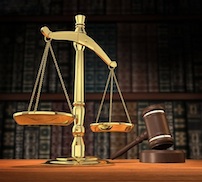DUI, DWI, Drunk Driving
Impaired driving is a serious offense with serious consequences. It is a crime for a driver to operate a vehicle when impaired. The offense may be called "driving under the influence" (DUI), driving while intoxicated (DWI) operating under the influence (OUI) or operating a motor vehicle intoxicated (OMVI).
If you are convicted of drunk driving you may be fined, you may lose your license, and your insurance premiums may increase. You may be jailed, subjected to probation or sentenced to perform community service. You may also receive a criminal record which will result in your being fingerprinted and photographed into police databases. A criminal record may affect your employment and your ability to travel freely.
Law enforcement officers have the right to stop a vehicle when they suspect the driver may be intoxicated. If stopped, you will be asked to take a field sobriety test that may include having you walk a straight line, reciting the alphabet backwards, using a Breathalyzer to determine blood-alcohol concentrations, or you may be taken to a hospital for urine and blood testing.
If you refuse such testing, you may be subjected to penalties such as losing your drivers license for six months to a year. Your refusal may be used to increase penalties if you are convicted for DUI.
If you have a blood-alcohol concentration (BAC) above .08, you are automatically considered intoxicated in the eyes of the law, and no further proof is necessary.
Zero tolerance laws apply to drivers under the legal drinking age, who will be punished for having any race of alcohol in their systems.
